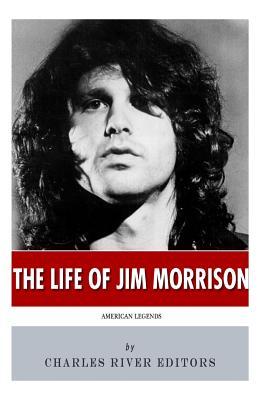*Includes Morrison's quotes about his life and career.
*Includes footnotes and a bibliography for further reading.
"I see myself as an intelligent, sensitive human, with the soul of a clown which forces me to blow it at the most important moments." - Jim Morrison
In the mid-1960s, an era on the cusp of change from the musical and social norms of the previous decade, the emergence of Jim Morrison, the charismatic poet/musician of The Doors, helped to transform the subgenre of rock n' roll as a stylistic flavor to the full-fledged institution of Rock Music. Morrison accomplished this transformation by avoiding membership in any of the known categories of modern rock music during the age of protest, but at the same time, he became the general symbol of anti-authoritarianism for his generation and the next, especially as rock music began to base itself on the urge of youth to revolt. In conjunction with that, The Doors became one of the most famous bands on the planet in the late '60s.
Of course, Morrison accomplished all of this by being extreme, in every sense of the word. His poetry was assaultive, blatant and graphic, a sign of the times, and his voice was mystical and haunting, lacking any sense of what was previously or typically considered vocal beauty. Whether intentional or not, Morrison also led the charge of excessive defiance toward anything hierarchical or rule-laden, and the acting out of his subconscious urges on public stages around the world surpassed any of the frightening new artists that were unraveling the fabric of '50s behavior, including The Beatles and Elvis Presley. He took these qualities past the point that American audiences had previously experienced, and listeners were simultaneously tested, taunted and incited by the unorthodox stage performer. Such a dynamic would come to serve as the perfect outlet to one with a "lust for anything forbidden by the authority of conservative Middle America," and for one who was endlessly "fascinated by crowd dynamics". Morrison was aware of that trend himself, as he once put it, "Each generation wants new symbols, new people, new names. They want to divorce themselves from their predecessors."
All the while, Morrison's writing and performances, as well as his most bizarre antics, were all fueled by drugs. Much like everything else, he took a metaphysical approach to using them, saying, "I believe in a long, prolonged, derangement of the senses in order to obtain the unknown." At the same time, he could be more down-to-earth about addictions, as he pointed out about alcohol, "It's like gambling somehow. You go out for a night of drinking and you don't know where you're going to end up the next day. It could work out good or it could be disastrous. It's like the throw of the dice."
Fittingly, Morrison was just as controversial in death as he was in life. When he died in Paris, presumably of a heroin overdose, theories cropped up over how he actually died or whether he even faked his death. In the process, he also helped immortalize the "27 Club" with Janis Joplin and Jimi Hendrix, who had both died at the age of 27 within weeks of each other less than a year before Morrison.
American Legends: The Life of Jim Morrison examines the life and career of one of America's most famous rock stars. Along with pictures of important people, places, and events, you will learn about Jim Morrison like never before, in no time at all.
